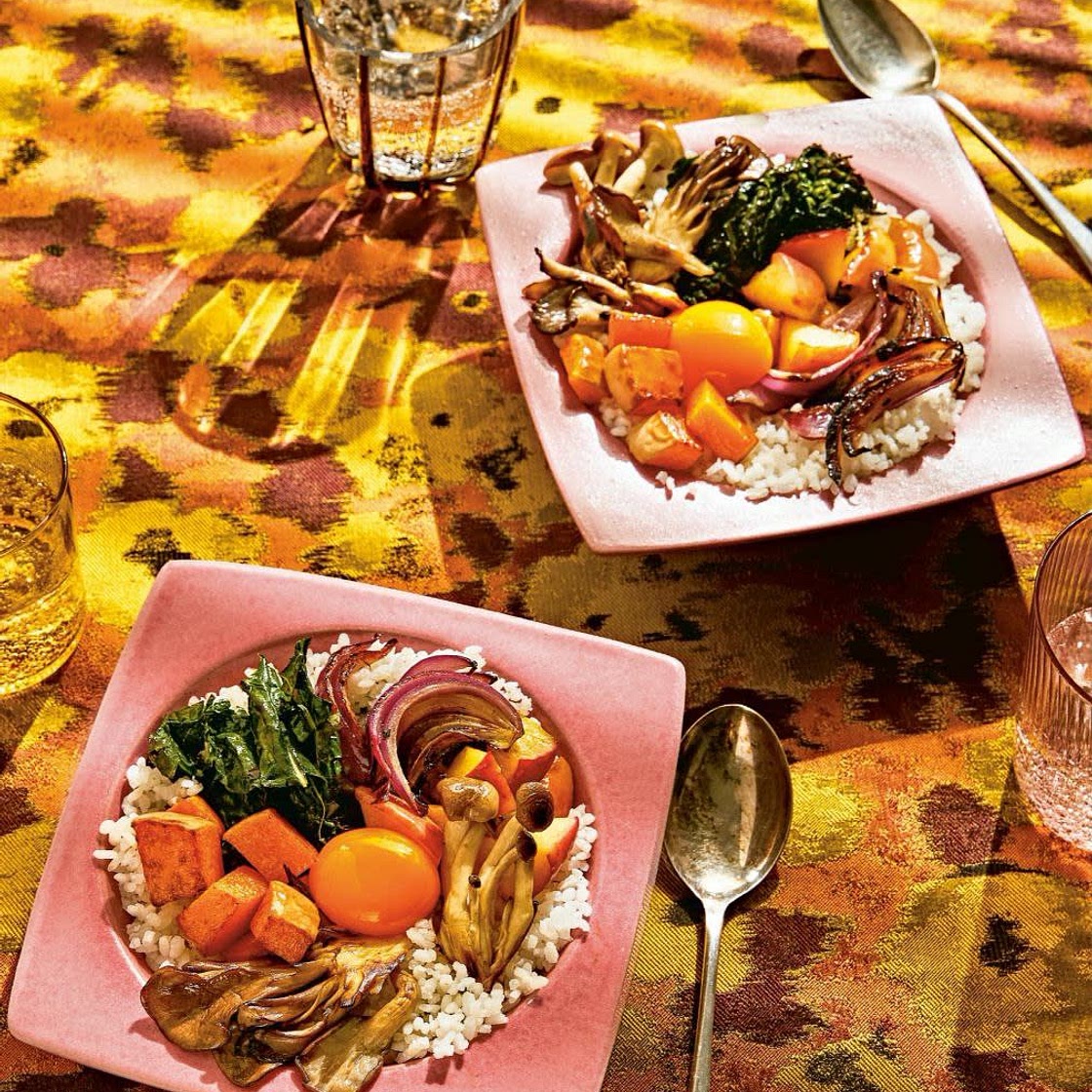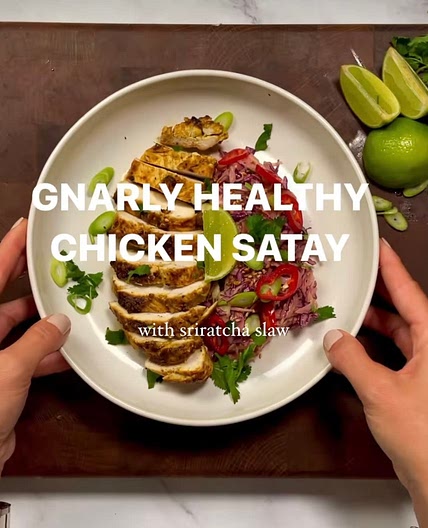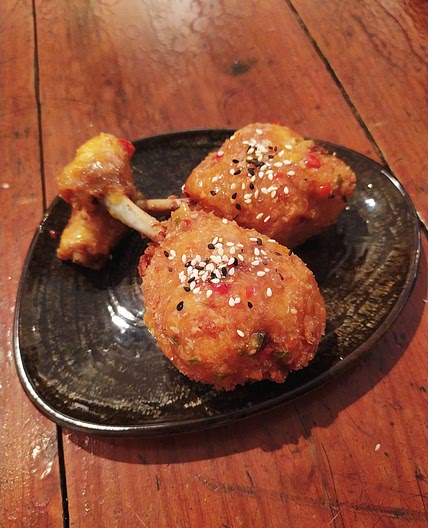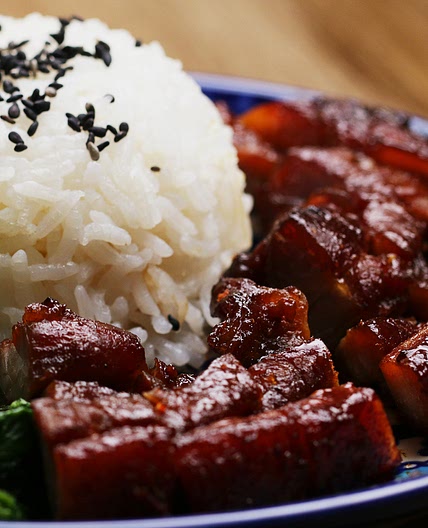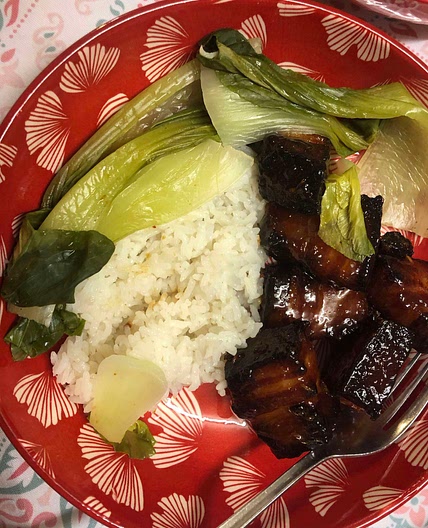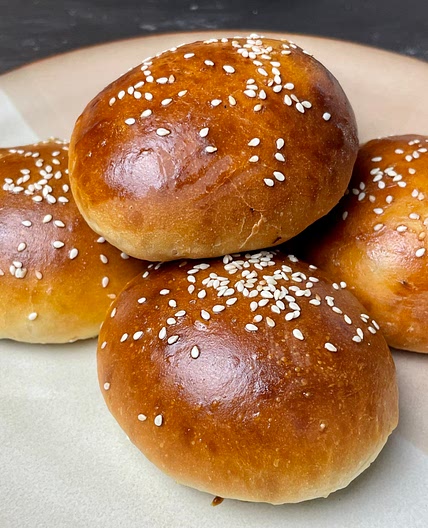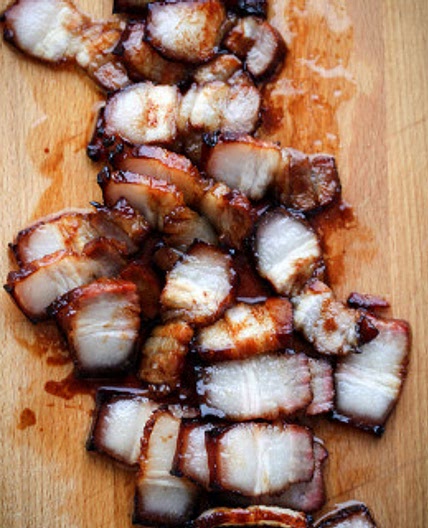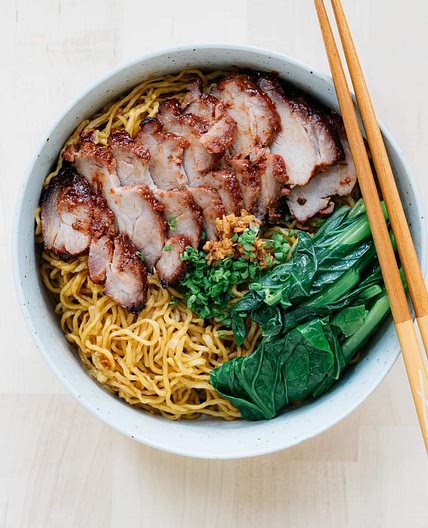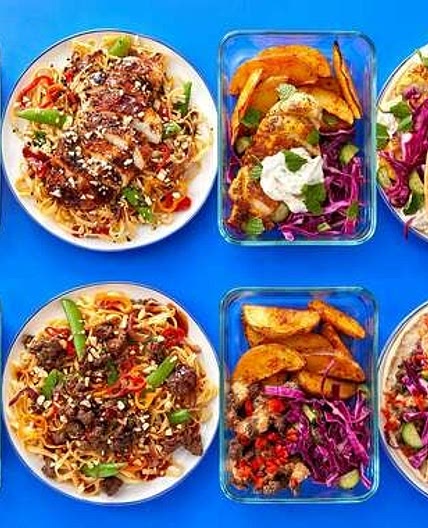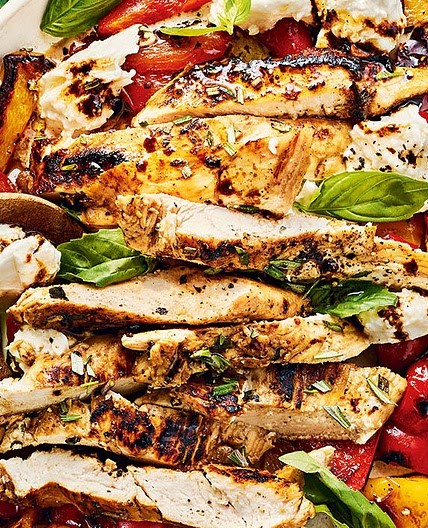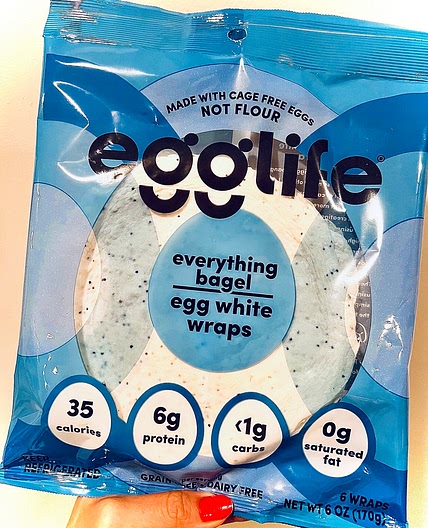By Anne Hy
Sheet-Pan Bibimbap with Roasted Fall Vegetables
I call this sheet-pan bibimbap because all of the cooking, from start to finish, happens on two 18 × 13-inch rimmed baking sheets. One main reason we never ate bibimbap growing up was because it always took too long and my mother didn’t want to do all that work (understandably). Where ordinarily you would pan-fry each individual vegetable separately to maintain those satisfying color blocks, then make an omelet and slice it, and even marinate some bulgogi for the meat component should you be going that route, roasting everything on a sheet pan means you can just set it and forget it. It’s bibimbap for the patient but lazy.
The other bibimbap recipes in this book prove that bibimbap is, at its core, a fridge-raid meal. It’s what happens when you have remnants of leftover banchan lingering in the fridge and just throw them all in a bowl with some leftover white rice, sesame oil, and gochujang. It’s supposed to be chill. In my version here, roasting all your vegetables on a sheet pan means you can arrive at bibimbap without standing over a stove, sautéing each ingredient individually. It’s also a really satisfying way to get as many different vegetables into one dish as possible (or to clean out your crisper drawer before the next grocery run). Even more, the vegetables will be caramelized and even charred at the edges, making this recipe a hearty fall meal. Then it’s just a matter of calling the family down for dinner to assemble their own bowls straight from the sheet pans.
This is my homage to fall, but you can use whatever vegetables you like. The butternut squash is key, though, in my opinion, especially once roasted until crispy-edged like honeyed chips. Their sweetness is doubly wonderful against the tart, crunchy apple and the mushrooms. The kale chips add a little salty something, though sautéed spinach is more traditional. Even Jean loves this sheet-pan method, saying it’s the reason she now makes bibimbap for herself whenever she’s craving vegetables.
Updated at: Thu, 17 Aug 2023 02:48:37 GMT
Nutrition balance score
Good
Glycemic Index
69
High
Glycemic Load
117
High
Nutrition per serving
Calories886.5 kcal (44%)
Total Fat12.4 g (18%)
Carbs169.7 g (65%)
Sugars10.7 g (12%)
Protein19.3 g (39%)
Sodium275.8 mg (14%)
Fiber6.1 g (22%)
% Daily Values based on a 2,000 calorie diet
Ingredients
4 servings
1 poundbutternut squash
don’t bother peeling it, seeded and cut into bite-size pieces
olive oil
kosher salt
freshly ground black pepper
10 ounceswild mushrooms
especially shiitake, stems removed, and oyster, torn into bite-size pieces
1red onion
medium, halved and thinly sliced
1red apple
large, halved, cored, and cut into bite-size pieces
4 ounceskale
Tuscan, lacinato, chopped into 1-inch pieces
4 cupswhite rice
freshly cooked, this page
2 teaspoonstoasted sesame oil
4 teaspoonsgochujang
4egg yolks
large, raw, ones you feel confident about
Instructions
Step 1
1. Preheat the oven to 450°F.
Step 2
2. On a sheet pan, toss the butternut squash with 2 tablespoons olive oil and season with salt and pepper. Slide to one half of the pan. Add the mushrooms and onions to the other half of the pan. Toss with 2 tablespoons olive oil and season with salt and pepper. Bake until the butternut squash and mushroom-onion mixture are crispy and burnished, about 45 minutes.
Step 3
3. Meanwhile, on another sheet pan, arrange the apples and kale separately, one on each half of the pan. Toss each with 1 tablespoon olive oil and season with salt and pepper and set aside.
Step 4
4. Once the squash and mushrooms have had their 45 minutes, take them out of the oven and toss them with a silicone spatula. Return the pan to the oven along with the second pan with the apples and kale. Bake until the kale has wilted slightly and become crispy, the apple slices are slightly softened, and the squash, onion, and mushrooms are even more caramelized, about 15 minutes.
Step 5
5. Divide the rice evenly among four large bowls. To each bowl, add 1 teaspoon gochujang and ½ teaspoon sesame oil. Divide the roasted vegetables and apple evenly among the four bowls, keeping them in color-blocked sections. Finish each bowl with a single egg yolk.
Step 6
6. To eat, just mix everything together and dig in.
Notes
1 liked
0 disliked
Delicious
Easy
Go-to
Makes leftovers
One-dish
There are no notes yet. Be the first to share your experience!
